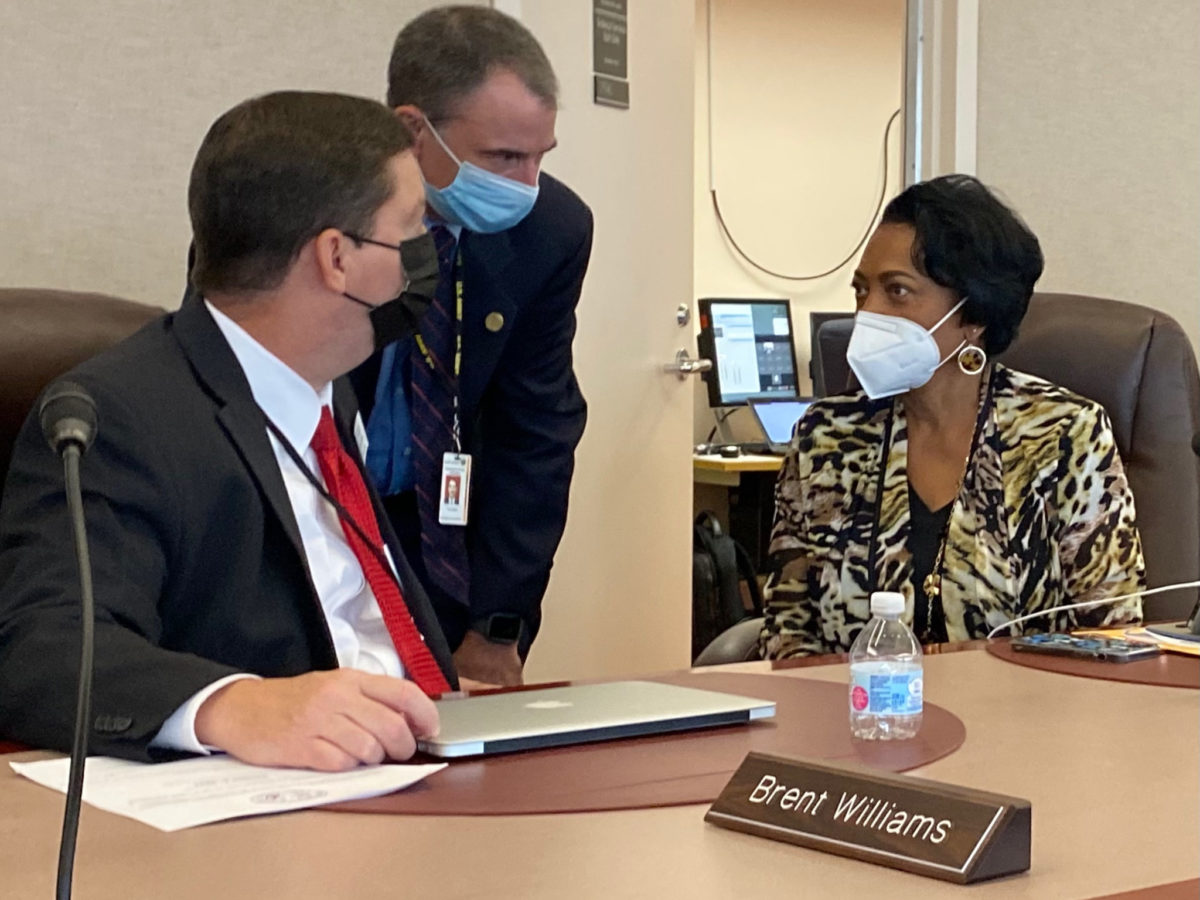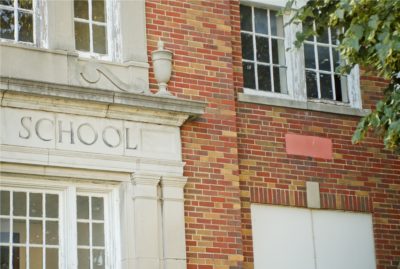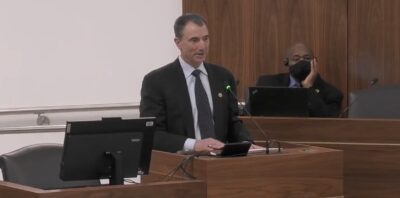
|
|
State Board of Education Chair Eric Davis gave the following remarks to the House Select Committee on An Education System for North Carolina’s Future on Feb. 21, 2022.
Mr. Chair, members of the House Committee on NC’s public education future, on behalf of my colleagues on the State Board of Education, thank you for the countless ways you have and continue to support our more than 1.5 million students, their families and their educators. In particular, thank you taking this bold step to imagine a better public education system in our state and for giving us the opportunity to join you on this journey.
What is the future of public education in NC?
That is the most important question that each of us as leaders should reflect upon in this time of crisis and challenge. Nothing is more important to you and me as our children and their future.
The quality of the education that this generation of State leaders provides our public school students will in large measure determine not only their future, but our own future and that of our State.
It is time for us to create together a new and compelling vision.
Today, thousands of NC public school students are graduating well prepared for their future endeavors. At the same time, far too many of our NC children are not getting the education they need, and that’s not acceptable.
Our task is twofold, to continue to expand what is working across NC, while at the same time to critically examine our system with brutal honesty, stop what is not working, and change the system.
The best place to start this change is by listening to our students, their parents, and our educators.
When we listen to our students, we hear their incredible aspirations and what they need from us to achieve their dreams such as:
“I need an engaging, empowering, and effective teacher who knows me and cares about me and who believes in me even when I do not believe in myself.”
“I need teachers who understand me because they have had similar life experiences, may look like me and will prepare me to learn and live in a diverse, ever changing society.”
“I need more caring adults in my classroom to help me learn and to recover the time lost with my classmates due to COVID.”
“When I experience trauma, anxiety or depression, which is often misinterpreted as unacceptable behavior, I need professional care and support so that it will not interrupt my education.”
“I need a safe, respectful classroom and school.”
“I need an opportunity to learn on a timeline that works best for me, not a rigid age based system but one that lets me spend more time on the subjects that I need to go slow and less time on the ones I master more quickly.”
“I need multiple ways beyond an EOG/EOC to demonstrate my understanding of the content and my ability to apply the knowledge that I have gained.”
“I want to see how the subjects I am studying and the standards I am held to, relate to the world that I live in, and the skills I need to be successful.”
“I need my parents to have a reliable job that pays a stable wage.”
When we listen to their parents, they tell us that they want our schools to help create a better tomorrow for their children. For example,
“I want my child to have access to quality early learning opportunities, be ready to learn the first day of kindergarten, and every day thereafter.”
“I want a safe, stable home life for my child in which he/she gets the physical, mental and emotional care needed to grow up healthy.”
“I want my child’s teacher to be well supported with the resources and skills to bring out the full potential in my child.”
“I want my child’s teacher to be my partner in my child’s education.”
“I want to choose to send my child to a public school that is fully supported by the community and state that I live in.”
When we listen to our public school educators, they tell us that they chose education in order to commit their time, talents, and abilities to improving our world through children. Educators say:
“I want to be ready day one to teach, including apprenticeship and internship opportunities, and to begin my teaching career debt free.”
“In my early years of teaching, I want a mentor to help me develop as a professional and in my later years I want the opportunity to mentor new teachers.”
“I need time to continue to develop my skills throughout the school year.”
“I want opportunities for increased responsibilities, including leadership roles, while remaining in the classroom.”
“I need multiple ways to demonstrate my effectiveness as a teacher.”
“I want to continue to leverage the skills and tools developed during the pandemic to include using virtual instruction as a tool to increase my students’ academic achievement.”
“I need relief from the burdens that keep me from teaching.”
“I need support to overcome my own fatigue and anxiety that the pandemic has magnified in order to be a positive force for good for my students.”
“In lieu of an EOC/EOG autopsy, I need timely, effective feedback on how well my students are learning so that I can adjust my teaching throughout the school year.”
From both certified and non-certified staff, we hear, “I want to earn a salary that is competitive with the private sector so that I can stay in education and can support my family.”
Finally, “I want to teach in a state that is known as the best place to be a teacher.”
Truth is, we know and have known for years what works in public education. But we have allowed our differences and fears, what one business leader recently called “the noise,” to stand in our way. We have a once-in-a-century opportunity over the next two years to innovate and transform the system. We must take longer strides on a more urgent and deliberate time schedule with the full commitment of our state’s leadership and abundant resources. Specifically, we should focus on three objectives:
First, recognizing that the one profession upon which all other professions rely upon is education, we must elevate the profession of teaching to attract and retain the talent that we need by:
- Redesigning our human capital systems including compensation and licensure to enable more candidates, as well as more candidates with diverse education, career and life experiences, to enter and stay in the profession, develop skills throughout their career and demonstrate their effectiveness, while earning increasing responsibility and compensation.
- Expanding across our state successful programs such as the New Teacher Support Program, Grow your own programs such as Teacher Cadet and TA to Teacher, along with Teaching Fellows, National Board Certification, Advanced Teaching Roles, and Principal Preparation programs.
- In response to current staffing shortages and in anticipation of the Great Resignation hitting our schools at the end of this school year and building upon the NC Long Leaf Commitment Grant and NC Promise, we should aggressively launch additional district and state level strategies to retain staff and fill vacancies before the next school year.
Second, to make maximize the effectiveness of our educators’ efforts, we must provide the health and support services that our students need by:
- Rapidly increasing the number of skilled professional psychologists, social workers, counselors and school nurses in our schools beginning with a minimum of at least one FTE per school dedicated to student health and well-being.
And third, to secure our economic prosperity and domestic tranquility, we must increase the academic achievement of all students by:
- Providing every student the opportunity to attend a high quality pre-K program
- Increase the number of caring adults educating our students, including teacher assistances in the early grades and high impact tutoring in all grades through successful programs such as the NC Education Corps.
- Aligning CTE credentials with workforce needs while increasing access for all students and align the K-12 school and community college calendars to maximize our combined impact on our students.
- Redesign our assessment and accountability system moving to a competency-based system that includes “whole child measures,” provides timely feedback to improve teaching and learning throughout the school year, and measures student abilities in the skills they need to succeed.
- Increase district and school flexibility by overhauling our Renewal and Restart programs along with creating dedicated teams of superintendents, principals, and teachers to transform our most challenged districts and schools.
In times of great crisis, economic depression, wars, hurricanes, or pandemics, we have set aside our differences and worked together, listening to each other without judgment, but with our eyes on the vision we share for our children, keeping them in the center of our work. And those who came before us, working together in this fashion, have achieved great things of which we are the beneficiaries. Now is the time for this generation to rise to the challenge.
The State Board stands ready to partner with you to transform our public education system in order to achieve our shared vision for our children and our state. We rededicate ourselves to this work, with renewed commitment to the students, parents, and educators that we serve, to make this vision the reality across NC.
Thank you.
Recommended reading




